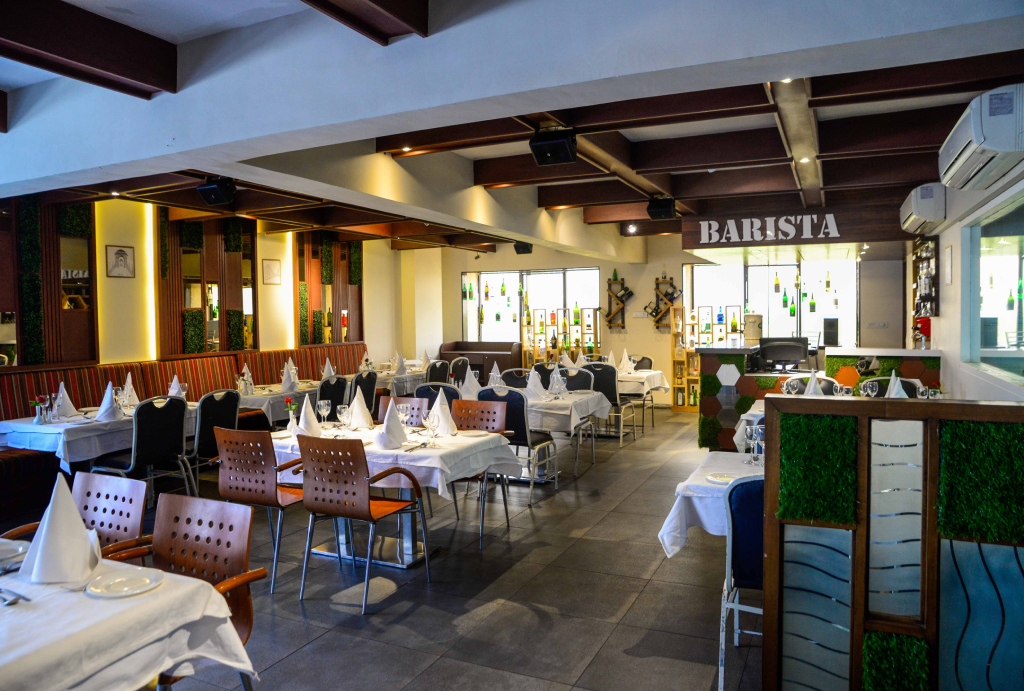The hospitality and tourism industry is one of the fastest-growing sectors in India and across the world. From luxury hotels and airlines to global tourism boards and event companies, this industry offers unmatched career opportunities. However, competition is also intense, and only those with advanced managerial and strategic skills stand out.
This is where an MBA in Hospitality and Tourism becomes a game-changer. It not only equips you with industry-specific expertise but also opens doors to leadership roles, global exposure, and high-paying jobs. If you’ve completed your graduation in commerce, management, travel, or even any other stream and want to build a career in hospitality, pursuing an MBA can set you apart from the crowd.
Why Choose an MBA in Hospitality and Tourism?
The decision to pursue an MBA in this field goes beyond just academic growth—it’s about future-proofing your career. Here’s why students and professionals are increasingly opting for this specialization:
- High Career Demand: With India’s tourism sector expected to contribute over USD 250 billion to the economy by 2030, the demand for skilled managers is only going to rise.
- Global Opportunities: Hospitality is one of the few industries where your skills are transferable across countries, opening international career pathways.
- Diverse Career Roles: An MBA doesn’t lock you into one role—you can explore hotels, resorts, airlines, cruise lines, travel agencies, event firms, and even government tourism boards.
- Strong ROI: Compared to traditional management courses, hospitality MBAs often provide quicker payback through placements in reputed companies.
Leadership Edge: You don’t just learn about operations—you build expertise in finance, marketing, HR, analytics, and customer psychology, making you fit for leadership.
Top Career Roles After a Hospitality MBA
Once you complete your MBA, you can choose from a variety of high-paying roles across industries. Let’s look at some of the top options:
1. Hotel General Manager
A Hotel General Manager is responsible for day-to-day hotel operations, including guest satisfaction, housekeeping, food & beverages, staff management, and revenue generation. With rising investments in luxury and boutique hotels across India, this role promises strong career growth.
- Average Salary in India: ₹8–15 LPA (varies with hotel brand & location)
- Skills Required: Leadership, people management, financial planning
2. Tourism Development Manager
Tourism Development Managers often work with government bodies, NGOs, or private tourism boards to promote destinations, create travel policies, and manage partnerships. They are the driving force behind building India’s global tourism image.
- Average Salary in India: ₹6–12 LPA
- Skills Required: Policy-making, project management, communication
3. Hospitality Consultant
As a consultant, you guide hotels, restaurants, and travel businesses to improve customer experiences, streamline processes, and increase profitability. This role is ideal for those who love problem-solving and innovation.
- Average Salary in India: ₹7–14 LPA
- Skills Required: Analytical thinking, strategy, market research
4. Revenue Manager
Revenue Managers use data analytics and forecasting to optimize hotel pricing, room occupancy, and maximize profits. With the digitalization of travel bookings and platforms like MakeMyTrip, OYO, and Airbnb, this career path is gaining momentum.
- Average Salary in India: ₹8–16 LPA
- Skills Required: Data analysis, financial modeling, digital tools
5. Event & Conference Director
This role involves planning and executing corporate events, destination weddings, international conferences, and exhibitions. It’s one of the most creative and fast-growing career paths after an MBA.
- Average Salary in India: ₹7–15 LPA
- Skills Required: Creativity, networking, project management
Skills You’ll Gain from an MBA in Hospitality and Tourism
The hospitality MBA is not just about learning theory—it’s about becoming a well-rounded professional. Here are the key skills you’ll acquire:
- Managerial Skills: Staff handling, leadership, and decision-making
- Operational Skills: Running hotels, travel firms, and events efficiently
- Communication Skills: Essential for customer satisfaction and teamwork
- Analytical Skills: Using data to improve services and maximize profits
- Financial & Marketing Skills: Budgeting, revenue planning, and branding
- Global Exposure: Understanding international cultures and guest needs
These skills ensure you’re not just employable but also adaptable to the evolving industry trends.
Benefits of Pursuing an MBA in Hospitality and Tourism in India
Why pursue this MBA specifically in India? Here are some compelling reasons:
- Booming Tourism Sector: India is one of the top global tourist destinations, creating demand for skilled professionals.
- International Placements: Many Indian universities offer global internships, tie-ups, and job opportunities abroad.
- Strong ROI on Investment: Tuition fees in India are comparatively lower, while placements ensure quick recovery of investment.
- Networking Opportunities: Industry events, alumni connections, and internships create lifelong professional networks.
- Wide Industry Coverage: From airlines to luxury hotels to eco-tourism, you get exposure to multiple sectors.
Best MBA Specializations in the Hospitality Sector
Not all students have the same career aspirations, which is why there are multiple MBA specialization routes:
MBA in Hotel Management
Focuses on hotel operations, housekeeping, food & beverages, guest services, and staff management. Perfect for those aiming for hotel chains like Taj, Oberoi, or Marriott.
MBA in Tourism Management
Centers on travel agency management, operations, sustainable tourism, and government roles. Best suited for those who wish to work with tourism boards or travel giants.
MBA in International Hospitality Management
Offers a global-focused curriculum with opportunities to work abroad. Students often get placements in international hotel brands and airlines.
How to Pursue an MBA in Hospitality and Tourism in India
Here’s a quick guide to pursuing this program:
- Eligibility: A bachelor’s degree in any discipline (minimum 50% marks).
- Entrance Exams: CAT, CMAT, MAT, or university-specific tests.
- Application Process: Apply online, appear for entrance, clear GD/PI rounds.
- Duration: Typically 2 years, divided into 4 semesters.
Why Choose Sigma University for Your Hospitality MBA?
If you’re considering where to pursue your MBA, Sigma University offers a program designed to meet global industry standards.
- Expert Faculty: Experienced professors with both academic and industry backgrounds.
- Industry Internships: Hands-on learning at reputed hotels and tourism firms.
- Placement Assistance: Strong tie-ups with leading hospitality brands.
- Modern Curriculum: Blends classroom learning with practical exposure.
- Focus on Global Readiness: International guest lectures and exchange opportunities.
This makes Sigma University a top choice for students aiming for both Indian and international careers in hospitality.
Conclusion
An MBA in Hospitality and Tourism is more than just a degree—it’s a gateway to a dynamic, global, and high-paying career. From managing luxury hotels to shaping tourism policies, this MBA offers diverse career options for ambitious students. With the right skills, industry exposure, and guidance from reputed institutions like Sigma University, you can build a successful career in this ever-growing sector.
If you’re passionate about travel, hotels, events, or global culture, this MBA is your perfect career launchpad.
FAQs About MBA in Hospitality and Tourism
Q1. What is the scope of an MBA in Hospitality and Tourism in India?
The scope is vast, ranging from hotels and resorts to airlines, event firms, and government tourism boards.
Q2. How is MBA in Hospitality different from Hotel Management?
Hotel Management focuses only on lodging and hotel services, while an MBA covers finance, marketing, leadership, and strategic growth in both hospitality and tourism.
Q3. Is an MBA in Tourism Management worth it?
Yes. It prepares you for roles in tourism boards, travel companies, and international projects, with excellent salary potential.
Q4. Which industries hire MBA hospitality graduates?
Hotels, airlines, cruise liners, travel agencies, event companies, and even government tourism organizations.
Q5. What is the average salary after a hospitality MBA in India?
Fresh graduates earn ₹6–10 LPA, while experienced professionals can earn ₹15 LPA+.
Q6. Can I work abroad with an MBA in Hospitality from India?
Absolutely. Many graduates secure jobs in the Middle East, Europe, Southeast Asia, and the USA.
Q7. What skills are essential to succeed in hospitality and tourism management?
Leadership, communication, customer service, analytics, and adaptability.
Q8. How long is the MBA in Hospitality and Tourism program?
It’s a 2-year full-time program in most universities.
Q9. What entrance exams are accepted for MBA in Hospitality at Sigma University?
Sigma University accepts CAT, CMAT, MAT, and also offers a direct admission pathway based on merit.


